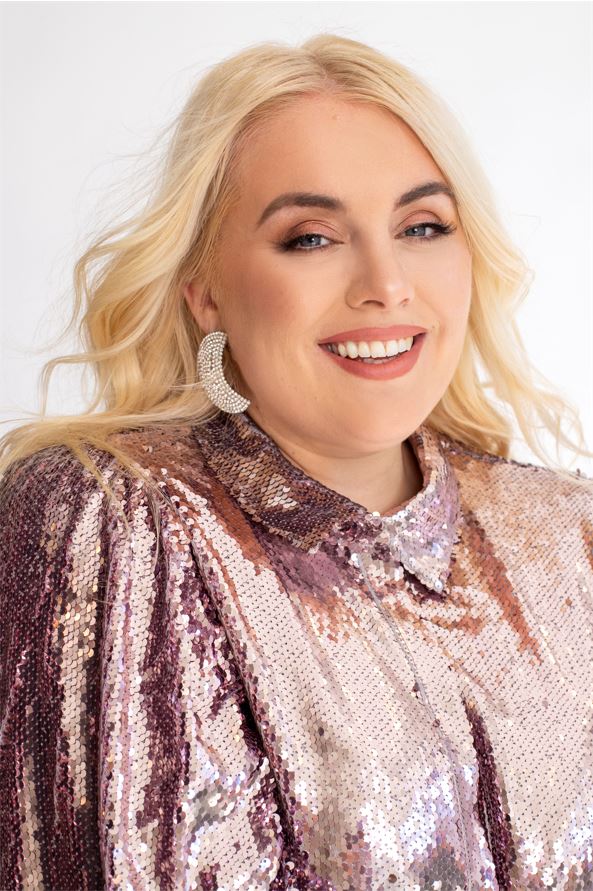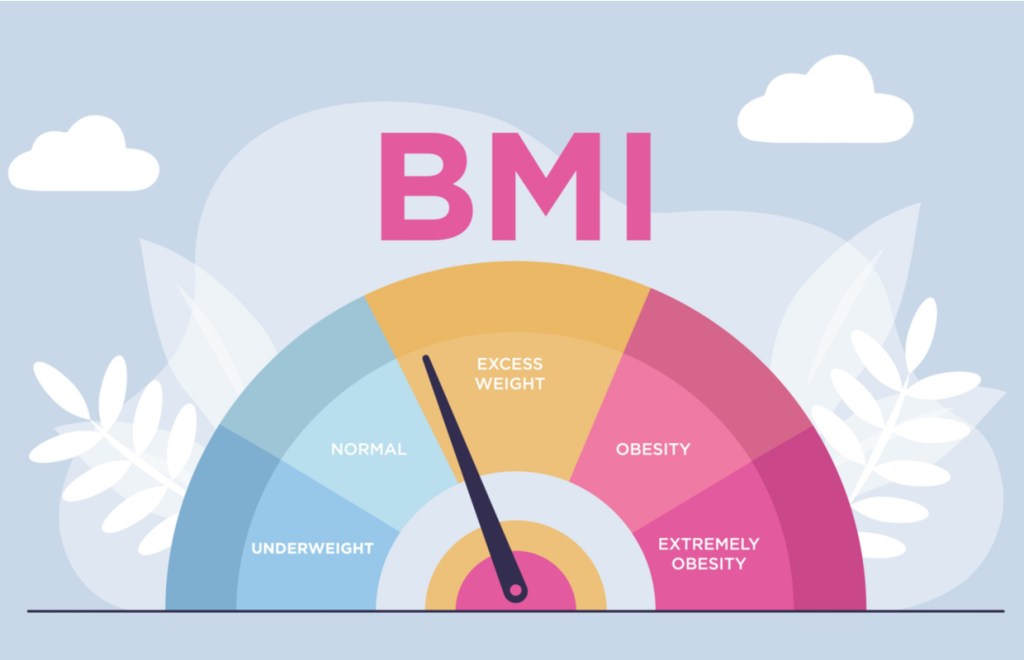Why BMI is flawed & must be abolished – Felicity Hayward
Curve model, body positivity activist and author Felicity Hayward tells us why BMI is an outdated measure that ought to be abolished...

Felicity Hayward is best known for spreading messages of body positivity and self-love. In her new book, Does My Butt Look Big in This? (£16.99), Felicity shares her advice on how to take control of your self-image and wholeheartedly love your true, authentic self. Here, she explains to us why BMI is a flawed and outdated measure of ‘health’ that ought to be abolished…

I don’t know about you, but whenever I remember going to the doctor’s when I was younger, I always think of those three dreaded letters: BMI. It sometimes felt like I would step into the surgery and straight onto some scales, as my BMI would be measured before we could turn to the actual issue I had booked an appointment to resolve.
The absolute anxiety it gave me when, in front of my parents, my doctor would tell me I was “obese”… well, I can safely say it doesn’t do much for your mental health as a young teen.
What is BMI?
Body Mass Index, or BMI, is calculated using a method which compares your height, weight, age and gender. You are then assigned to a category on a scale, and here is the wording you would receive in the UK:
Underweight
Healthy Weight
Overweight
Obese
Morbidly Obese
The immediate glaring issue here is that there is no ‘Morbidly Underweight’ category. This, sometimes dangerously, shifts the focus on being bigger as the worst possible outcome for your health.
I was around a UK size 14 when I was told I was “obese”; yet I was smaller than the national average at that time (size 16). I had no health conditions. Still, I found being labelled this way hugely alienating and started seriously think about dieting.
It’s at this point where an eating disorder could have easily developed – and where so many eating disorders do start for young children and teens. It’s a vulnerable time, and mental health problems seeded at moments like this can potentially continue with you for the rest of your life.

Is BMI an accurate measure of health?
I want to put this to you –
Arnold Schwarzenegger, the poster boy of body building, is Obese on the BMI Scale.
Dwayne Johnson, also known as “The Rock”, a retired wrester and actor, is classed as Obese on the BMI Scale.
Amanda Bingson, track and field athlete who has who broken world Olympic records, is classed as Obese on the BMI Scale.
Gia Caragi, recognised as the first ever supermodel, was classed as a Healthy Weight on the BMI Scale, but was in fact struggling with mental health issues and severe drug abuse, which eventually contributed to her passing.
Hollywood actor Tom Cruise is classed Overweight on the BMI Scale because of his 5’7” height.
Tony Romo, Quarterback for the Dallas Cowboys American Football team, is classed as Morbidly Obese on the BMI Scale.
I think you can see the point I’m trying to make here. Can you define someone’s health by where they lie on a scale? I’m not saying every single person in the obese categories is healthy; but it’s certainly not equal across the board. Some of these individuals are amazing athletes literally representing their country.
Why BMI is flawed and outdated
Using numbers on a scale, like with BMI, is a completely flawed and outdated way to measure health.
Developed by Lambert Adolphe Jacques Quetelet in 1830, BMI began as a simple math formula by a man fascinated by the measurements of the human body.
But then scales, increasingly available for home use, came into play in the mid-20th century. This led insurance companies to start to gather data on their customers, with the idea that the higher someone’s weight was, the lower their life expectancy would be.
In the 1940s, the Metropolitan Life Insurance Company created its own tables for desirable weight, which were then cynically used in their very own policies. Fast forward to today and BMI is still used for life insurance plans and – you guessed it – if you have a higher BMI your price will be affected.
Cashing in on BMI
Is this one of the reasons we haven’t found a better standard for defining health and weight? So much money is riding on an outdated method, legitimised by doctors, leading to huge consequences for ordinary people.
There are a million better ways to assess someone’s health, rather than using BMI. For example, you could look at medical records, genetics, fitness, mental wellbeing, and lifestyle habits such as smoking, drinking and diet, to name but a few.
Are we able to imagine a world where weight doesn’t define health?
Food for thought.

Felicity Hayward’s self-love and body positivity manifesto, Does My Butt Look Big in This? (£16.99, Greenfinch), is out now.
More inspiration: Angela Scanlon opens up about her 15-year eating disorder
Words: Felicity Hayward | Images: Lauren Thom and Shutterstock








